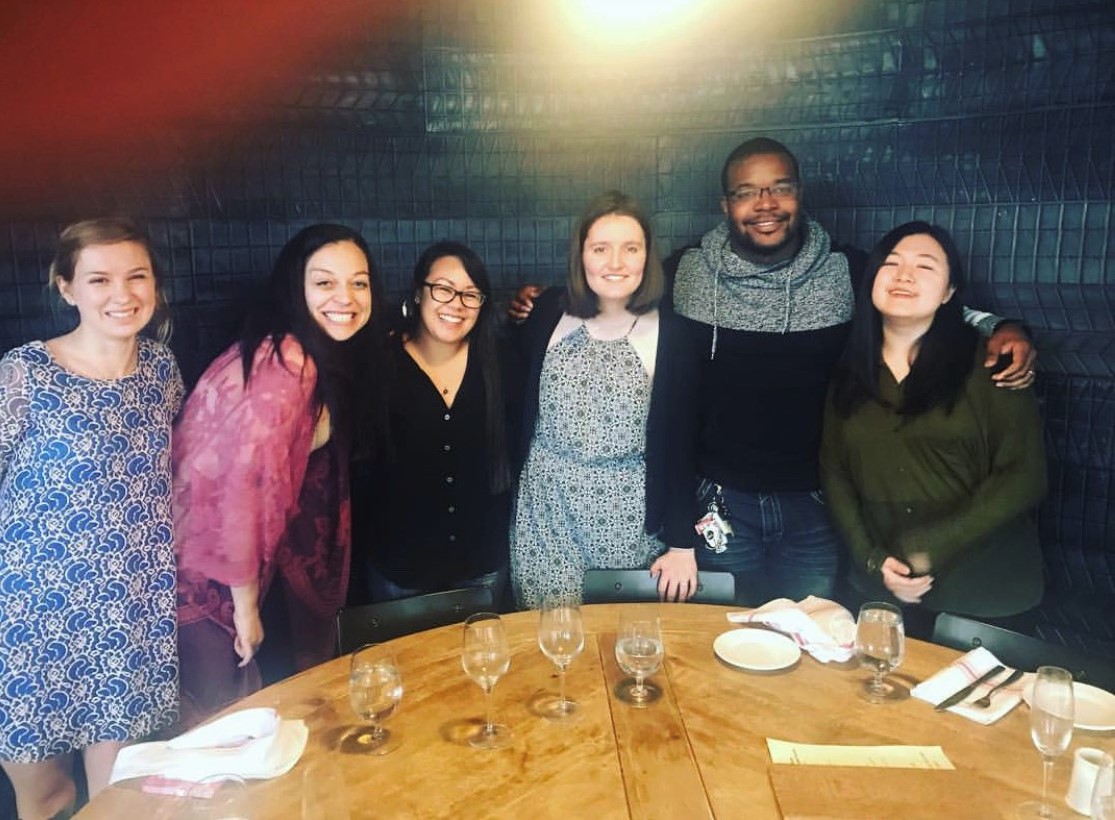Legal Associate Spotlight: Jenna Kyle
Jenna Kyle was a 2019 Legal Associate for the Lex Fellowship in Barcelona, Spain. A recent graduate of Cornell University Law School, she is glad to be back in her native California where she is applying for legal positions with nonprofits. In her spare time, Jenna enjoys yoga.
Jenna, tell us about your background.
I’m originally from the San Francisco Bay area. After graduating from UCLA with a philosophy degree, I decided to go to D.C. and do a policy internship with a civil rights group because I hadn’t had time to give back during my undergrad years. After that, I went back to California and got really good work experience at private firms, which ignited my desire to go to law school. I got into several good schools, but decided on Cornell. I loved it; it was the best place for me. It was small and close-knit. Everybody knows everybody. Honestly, the first year of law school is going to be challenging anywhere, so it’s best to be somewhere where you feel supported. Law school was as hard as people say, but I enjoyed it.
During law school, Jenna served as president of Cornell’s Native American legal association.
Do you think the Lex Fellowship would have been helpful to you as an undergrad?
I think it would have been helpful, especially because I believe that what the Fellows got through the experience was invaluable. The work we were given was applicable; it dealt with real cases and material. I think it would have been such a huge help for me in undergrad. I know from experience that it is transferable to what you do in law school or any kind of summer position. When I went with the Fellows to the firms, I felt that it was reflective of real firm life, which I had experienced in my work in the years before.
What makes the Lex Fellowship unique?
You get a complete and real experience of law and law firms, plus amazing training. We hit on so many topics! Another unique factor is that you get to study and learn in an international setting. A lot of students came out of the program considering international law, simply because of their Lex experience. The complete package that Lex provides is unique - it isn’t just a study abroad program, you have to put in the work. But the blend of work and culture also makes it unique.
Jenna and her Fellows in Barcelona
How would you describe your role as the Legal Associate?
I provided educational support to the Fellows at firms and in trainings. At firms, we would prepare by reading a case or materials provided to us. I was there to answer any questions for the Fellows and provide support. At trainings, I gave them information and answered questions about first-year doctrinal classes.
What were some of the training topics?
At the beginning, I surveyed the students to understand the subjects they wanted to cover for a longer period of time. They were all really excited about criminal law, so we took a little more time with criminal law and procedure. We did most of the first year doctrinal classes and a few higher level classes as well as a moot court case that they really enjoyed. I set out the guidelines and gave them a ridiculously long case to read; of course, I was the judge and they had to argue.
What is your top tip for students who want to pursue law school?
A lot of students get locked into the idea of law school without doing their homework. There are law schools you can get into, but if you don’t check the employment ratings, you don’t know if you can land a job after graduation. A lot of Fellows don’t know that universities are required to publish data about graduate employment rates.
I would encourage students to do their homework and understand the financial cost. It’s three years of your life, it’s a huge investment of time and money. Programs like Lex are so helpful because they are part of doing your homework. You understand what law school culture is like, you look at cases, and you prepare to discuss them. It might not be for everyone. You might not want to read hundreds of pages of cases, but maybe you wouldn’t have realized that until you actually sat down and read one. So, my advice is this: do the best you can to understand the application process and what your goals are. Then, ensure that wherever you apply is aligned with that.


